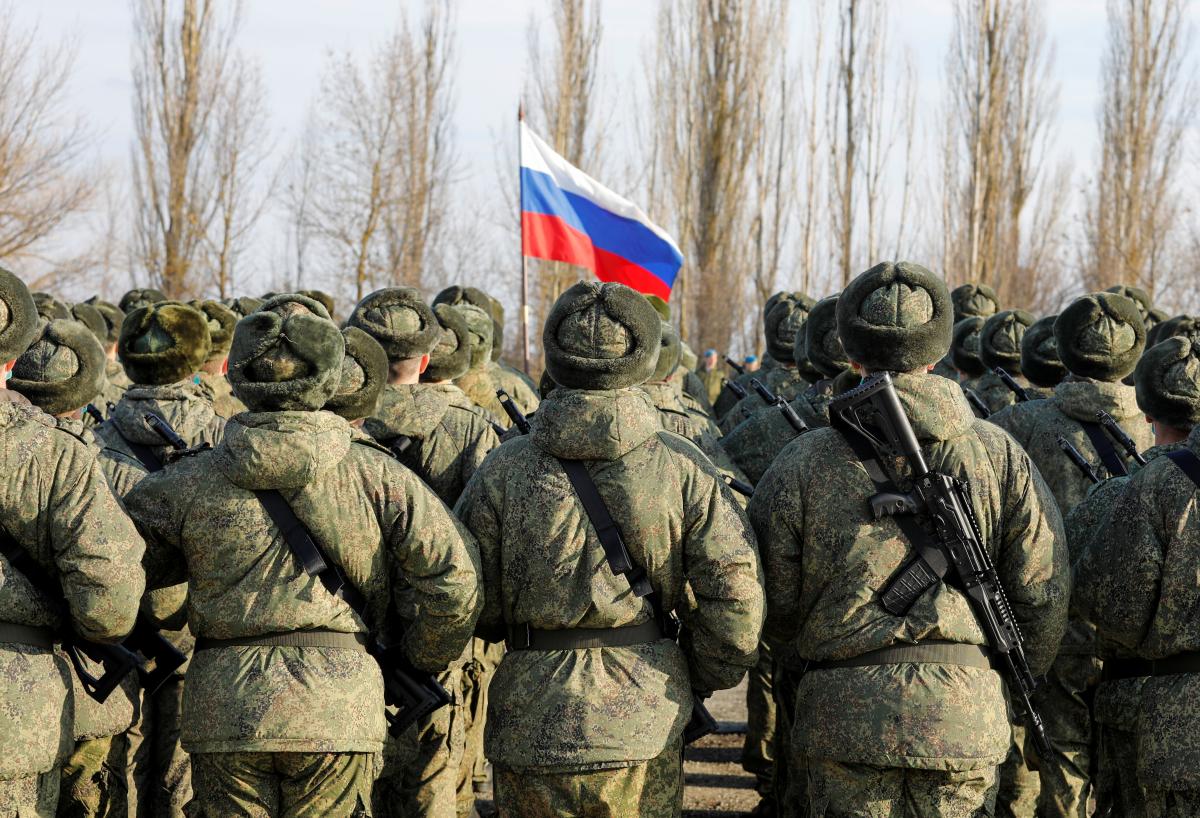
Pro-Kremlin media spread disinformation to support the build-up of Russian troops and military equipment along Ukraine's borders.
As Russian military equipment and troops moved towards Ukraine, the pro-Kremlin media recycled a medley of its greatest disinformation hits presenting Ukraine both as a relentless aggressor (attacking its own territory!) and a hapless puppet of the US; painting Ukraine as nationalist to the extent of imminent genocide of Russians in Donbas, and claiming that Ukraine isn't even a state, according to a report by the East Stratcom Task Force, a part of the European External Action Service fighting disinformation in Russia.
"For some people, holding two contradicting beliefs may be a sign of cognitive dissonance. For the pro-Kremlin media though, it is just a matter of delivering tailored messages to its target audiences," the report says.
This week the pro-Kremlin media again falsely accused Kyiv of violating the Minsk Agreements, just as in 2015; 2016; 2017; 2018; 2019; and 2020. It perpetuated a myth of "abandoned Ukraine" as in 2016; 2017; 2018; 2019; and 2020. Disinformation claims that the U.S. has been pushing Ukraine to a confrontation with Russia and the "civil war" got new visuals this week, but they followed a well-established pattern we have seen time and time again.
As if drawing from its "best practices", the pro-Kremlin media also delivered highly emotional messages about a small boy allegedly killed by a Ukrainian army drone in Donbas. The claims (which were debunked by independent Russian and Ukrainian fact-checkers) were circulated across the Russian state-controlled media and were used by the speaker of the Russian Duma to demand the discussion of excluding Ukraine from the Council of Europe.
Read alsoDonbas talks: Ukraine delegation spox decries allegations of Ukraine troops killing boy in occupied village"This approach is similar to the infamous "crucified boy" story the pro-Kremlin media spread back in 2014 to incite hatred against Ukrainians among Russian domestic audiences, and justify its armed aggression against Ukraine," the experts said.
In this context, the claims that Ukraine was about to incite a genocide of Russians in Donbas, which re-appeared in the pro-Kremlin media this week, are particularly worrying. The Kremlin has used unfounded allegations of genocide to justify its aggression in the past. Today as well, such claims are meant to help the Kremlin mobilise public support for its actions by betting on public moral outrage.
Russian troops amassing along Ukraine's borders
On March 30, 2021, Commander-in-Chief of the Armed Forces of Ukraine, Colonel-General Ruslan Khomchak said Russia had deployed 28 battalion tactical groups along the state border of Ukraine and in the temporarily occupied territories. It is also said to be planning to bring up to 25 battalion tactical groups under the guise of preparing for military drills. Such actions pose a threat to Ukraine's military security.
The U.S. Department of Defense said it was "aware of Russian troop movements" on Ukraine's borders and was concerned about recent escalations of Russian aggression in eastern Ukraine.
On April 1, 2021, the Kremlin commented on the movement of Russian troops near Ukraine's borders, saying this should not cause "any concern" to anyone.
Ukrainian President Volodymyr Zelensky says Moscow is trying to put pressure on Kyiv by amassing its military forces along the Russian-Ukrainian border. At the same time, he assures Ukraine is ready to counter any provocation and continues to defend in the negotiations the position of maintaining a more effective ceasefire in Donbas.
The Ukrainian Defense Ministry's Main Intelligence Directorate does not rule out that enemy forces may try to go for an incursion and deploy their troops deeper into the territory of Ukraine. According to intelligence reports, Russia is building up its military presence near the Ukrainian borders and is completing the preparation of a set of measures aimed at forcing Ukraine into a military response.
On April 1, 2021, U.S. Defense Secretary Lloyd Austin and Ukrainian Defense Minister Andriy Taran had a phone call on the initiative of the American side. Austin condemned the recent aggressive and provocative actions by Russia in eastern Ukraine and assured his counterpart of U.S. readiness to support Ukraine in the context of Russia's ongoing aggression in Donbas and Crimea.
In turn, the Kremlin vowed "additional measures" if the U.S. troops are deployed on the territory of Ukraine.
U.S. President Joe Biden in his first call with Ukrainian President Volodymyr Zelensky on April 2, 2021, affirmed the U.S. "unwavering support" for Ukraine's sovereignty and territorial integrity "in the face of Russia's ongoing aggression" in Donbas and Crimea.

